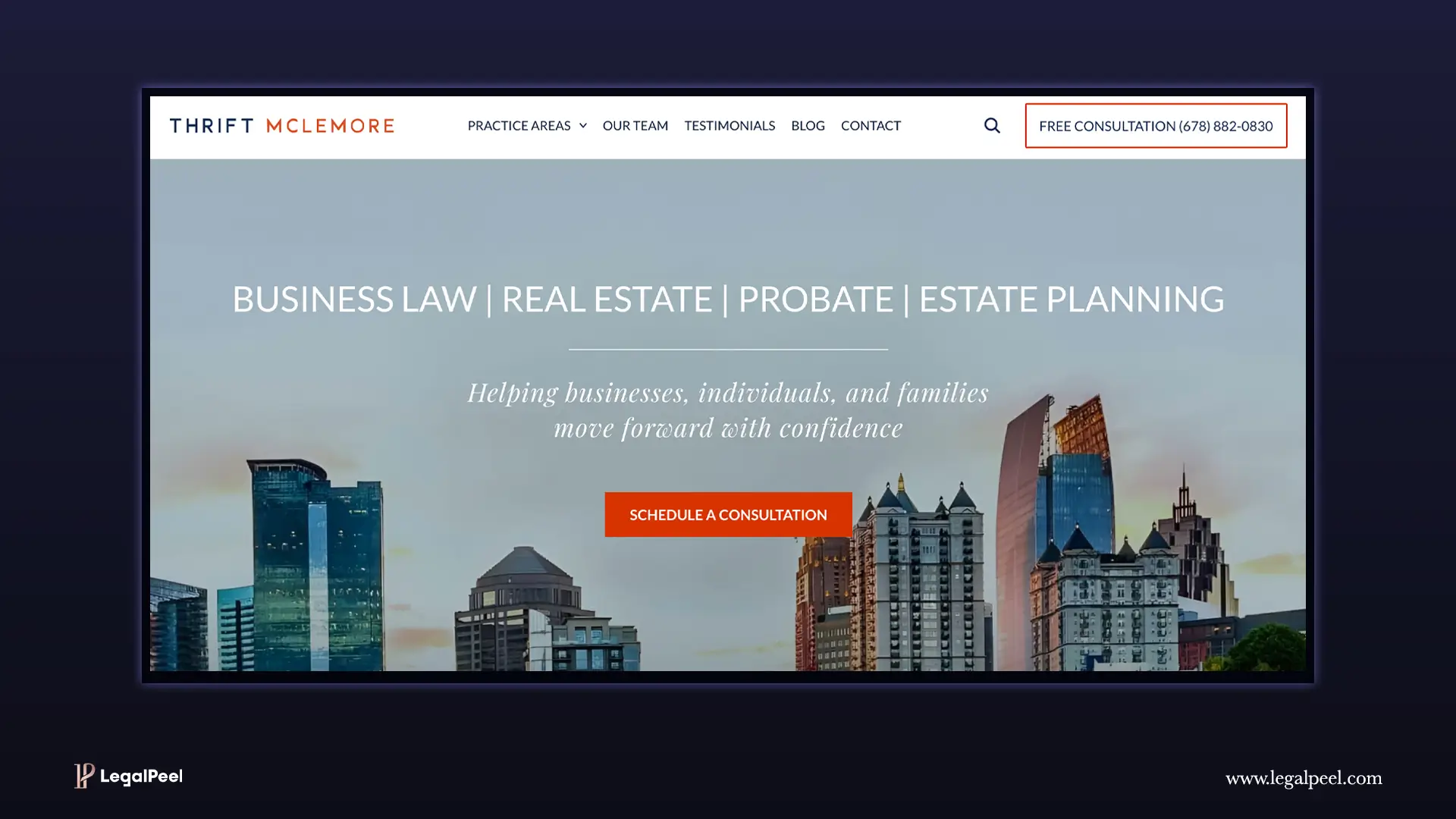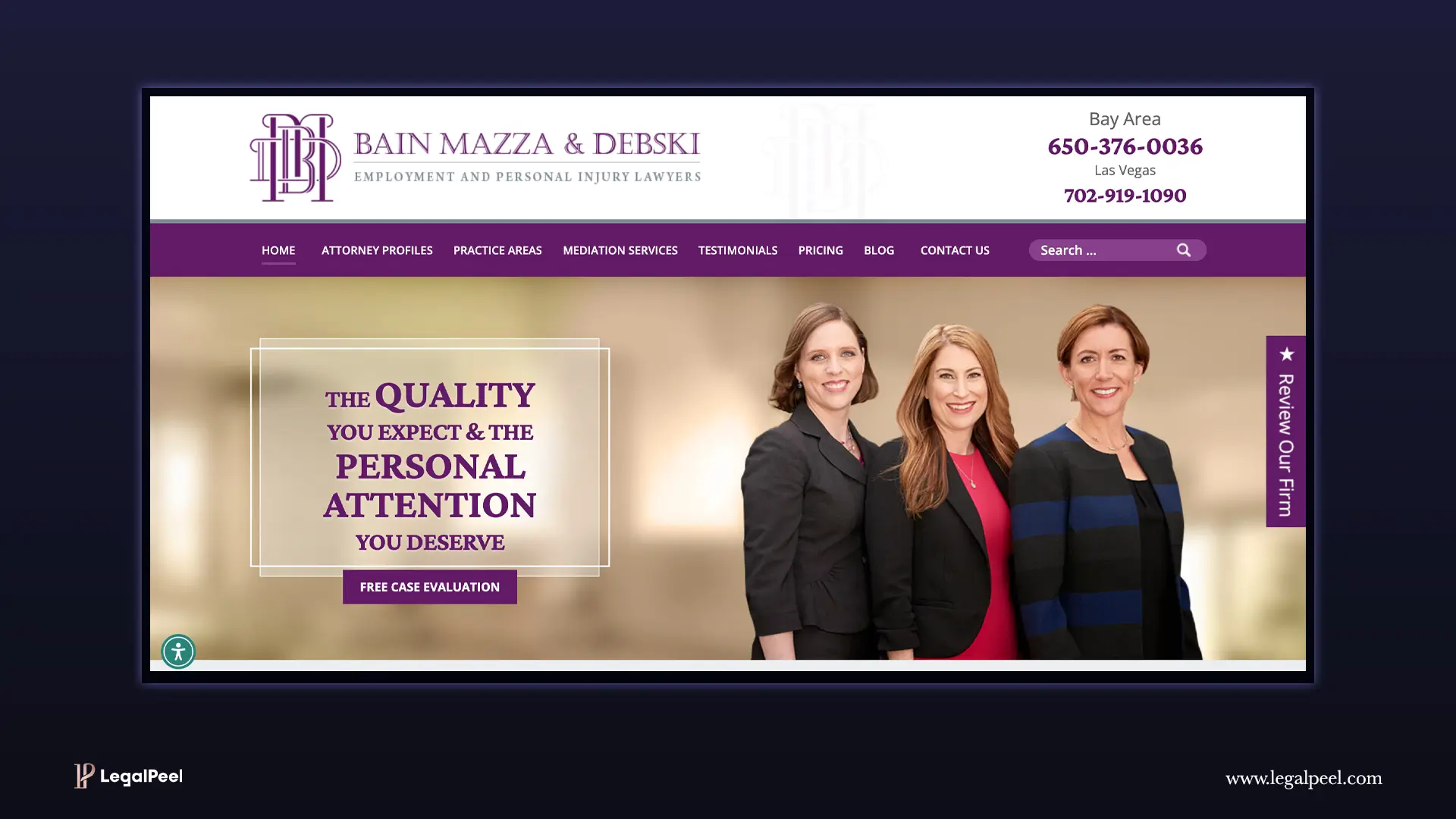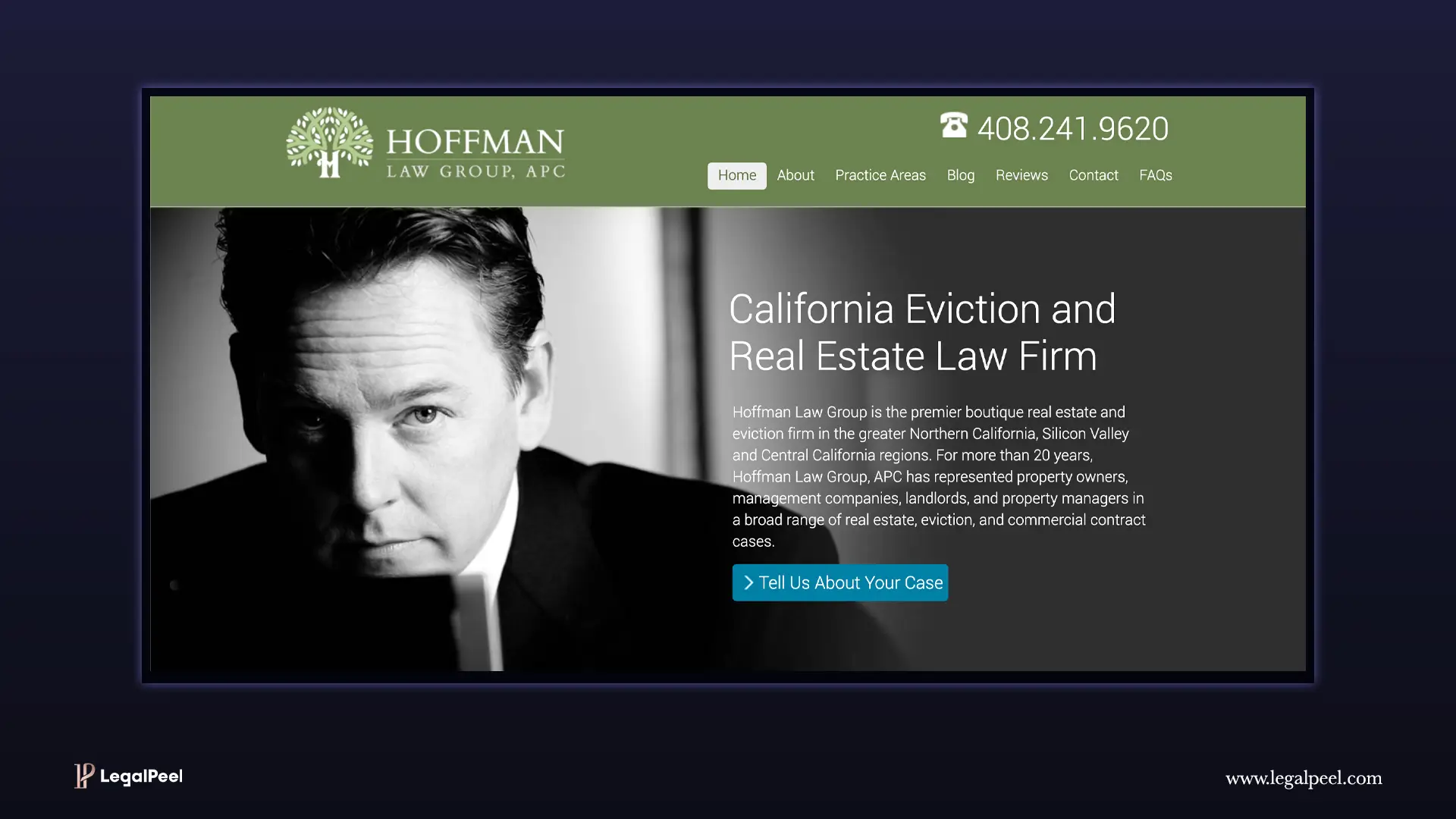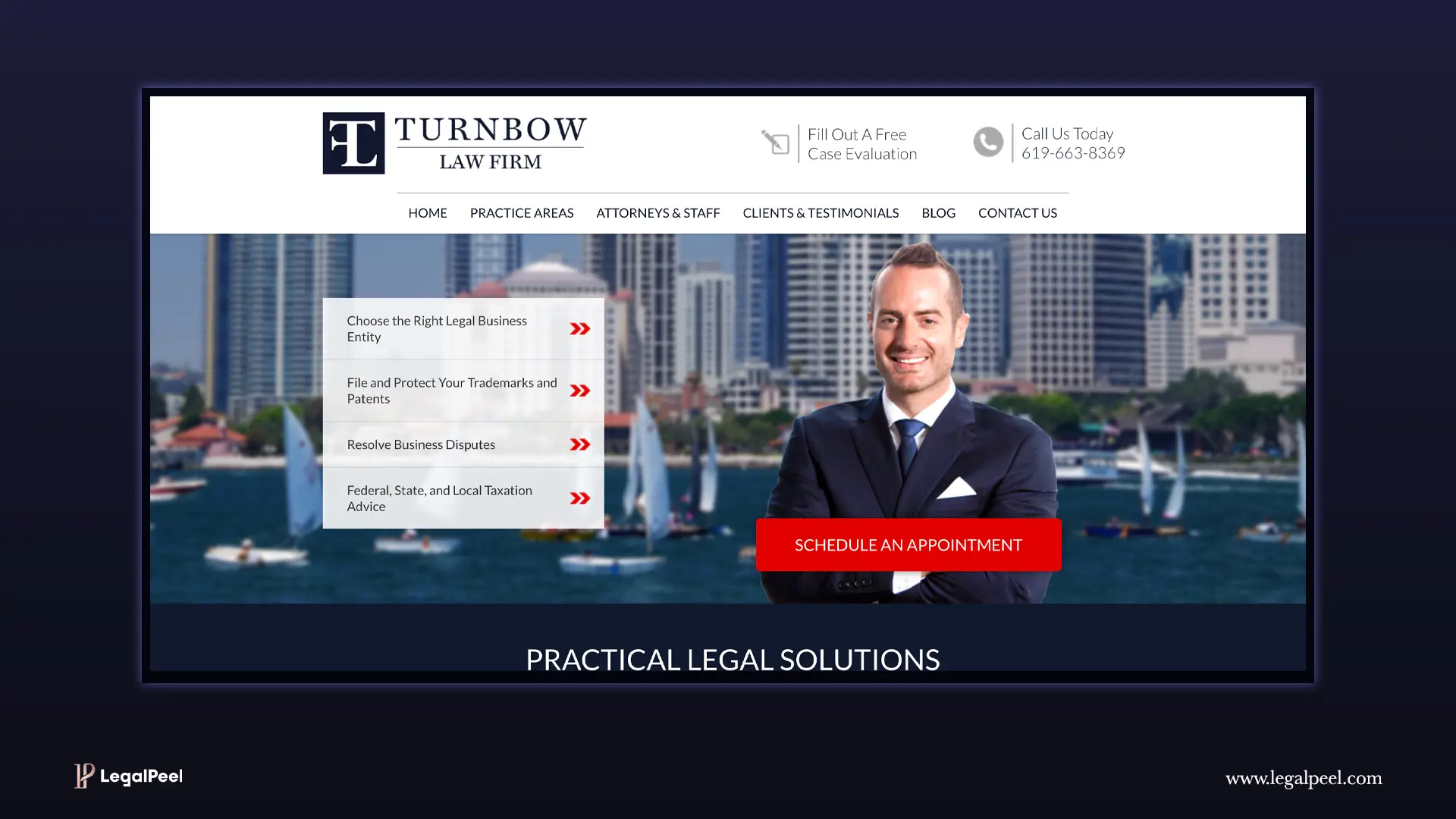7 Innovative Law Firm Lead Generation Systems That Actually Work in 2025
In 2025, law firm lead generation is about smarter systems, not just ads. From SEO and PPC to automation and client intake tools, here’s how to keep new cases coming in consistently.

Key Takeaways
- To learn about lead generation systems for lawyers
- 7 innovative lead generation systems for law firms
- Should a law firm hire a lead generation company?
- Common questions you have about lead generation
Lead generation is not one kind of billboard system. Not just visible to the clients. But also to create trust, consistency, and believability to the viewer.
But how can we do all these things?
Is the Lead Generation system different for a Law firm?
In the legal industry, great client experience and smart digital marketing powered by law firm SEO attract more legal clients.
In this article, we’ll explore the data-driven mechanics of generating high-quality leads for a law firm.
What Is Lead Generation for Lawyers?
Lead generation for lawyers is the process of attracting and converting potential clients (leads) into paying clients for your law firm.
It’s a universal marketing strategy used across industries, but in the legal field, it focuses on making your firm more visible, building trust, and encouraging people with legal needs to contact you.
In simple terms: It’s how you get new cases.
According to legal marketing research:
- Over 68% of law firms say generating quality leads is their biggest growth challenge.
- Firms that actively use online lead generation strategies see 2–3x more client inquiries than those relying solely on referrals.
An easy example for you: If your firm handles personal injury cases, your lead generation strategy might focus on people searching for “car accident lawyer near me” or “injury attorney in [city].”
Types of Law Firm Leads by Sales Funnel Stage
Understanding where your leads fall in the sales funnel helps you tailor your marketing and follow-up strategies for maximum conversions.
1. Cold Leads (Top of Funnel)
- Who they are: People who have only casually heard of your firm through ads, social media, or general searches.
- Goal: Build awareness and trust.
Best strategies:
- Blog content that answers common legal questions
- Social media posts introducing your services
- Free resources (e.g., downloadable legal checklists)
2. Warm Leads (Middle of Funnel)
- Who they are: Potential clients who know your firm and have shown some interest but aren’t ready to hire yet.
- Goal: Educate and nurture.
Best strategies:
- Email newsletters with legal tips
- Case studies showing your track record
- Webinars or Q&A sessions on legal topics
3. Hot Leads (Bottom of Funnel)
- Who they are: Prospects who are ready to hire and just need the final push to choose your firm.
- Goal: Convert them into paying clients.
Best strategies:
- Free consultations
- Clear pricing and service packages
- Client testimonials and reviews
- Strong, direct calls-to-action
Common Roadblocks to Effective Law Firm Lead Generation
Before your law firm invests time and resources in lead generation campaigns,
it’s essential to ensure your online presence and marketing foundation are solid
- Is your website free of errors like broken links or 404 pages?
Errors make your firm look unprofessional and drive visitors away. - Do you have landing pages or forms to capture visitor information?
Without these, interested prospects leave without letting you follow up. - Are you tracking website performance and visitor behavior?
Without data, you can’t fix what’s blocking potential clients from contacting you. - Is your website fast and mobile-friendly?
Most visitors use phones; slow or unresponsive sites lose their interest. - Is your website easy to navigate?
Confusing menus or clutter make it hard for visitors to find your services or contact info. - Is your firm’s branding consistent and professional?
A polished brand builds trust; inconsistent branding can turn clients away. - Is your messaging tailored to your specific legal practice areas?
Generic content doesn’t connect with clients seeking specialized legal help.
- Do you have a reliable follow-up process for captured leads?
Leads that aren’t contacted quickly often choose another attorney.
[[inner-cta]]
7 Innovative Law Firm Lead Generation Systems
1. Pay-Per-Click Advertising (PPC)
What is it?
PPC is a paid advertising model where law firms pay for clicks on ads that appear in search engines or social media. It’s a fast way to get your firm in front of potential clients actively searching for legal help.
How is it done?
Law firms create targeted ads with keywords like “divorce lawyer near me” and set a budget to appear at the top of search results or social feeds. Each click drives interested prospects to the firm’s website or landing page.
Insight:
Law firms running PPC campaigns often achieve a 2-5% conversion rate, making it one of the quickest ways to attract qualified leads. Learn more about PPC for lawyers.
2. Content Marketing
What is it?
Content marketing involves publishing helpful, SEO-optimized legal articles, guides, and FAQs to educate potential clients and build trust.
How is it done?
Law firms regularly create blog posts answering common legal questions, publish detailed guides, and update FAQs to improve SEO and attract organic traffic.
Insight:
Firms that blog consistently experience up to 67% more legal work leads than those that don’t. Discover effective content marketing strategies for law firms.
3. Social Media Marketing
What is it?
Social media marketing uses platforms like LinkedIn, Facebook, and Instagram to share legal content, engage with users, and raise brand awareness.
How is it done?
Lawyers post regular updates, share client testimonials, run targeted ads, and interact with followers to build relationships and encourage referrals.
Insight:
Approximately 75% of people say they have hired a legal professional based on social media recommendations or posts. Explore social media tips for lawyers.
4. Email Marketing Campaigns
What is it?
Email marketing involves sending targeted emails to nurture leads and encourage them to contact your law firm.
How is it done?
Firms send a welcome email with a free resource, followed by educational emails and a final call-to-action inviting prospects to schedule a consultation.
Insight:
Email marketing delivers an average ROI of 38:1, making it one of the most cost-effective ways for law firms to nurture leads. Learn how to build successful email campaigns.
5. Search Engine Optimization (SEO)
What is it?
SEO is the process of optimizing your law firm’s website so it appears higher in search engine results for keywords potential clients are searching, like “Atlanta personal injury lawyer” or “best divorce attorney near me.”
How is it done?
SEO involves keyword research, optimizing website content, improving site speed, earning backlinks, and keeping your Google Business Profile up-to-date to attract local clients.
Insight:
Law firms on the first page of Google capture over 90% of all search traffic, making SEO essential for sustainable lead generation. Learn how SEO works for law firms.
6. Legal Directories and Listings
What is it?
Legal directories are online platforms like Avvo, FindLaw, or Justia where law firms can list their services, contact details, and reviews to gain visibility.
How is it done?
Create and optimize profiles on reputable legal directories, ensuring consistent contact information, detailed service descriptions, and client reviews.
Insight:
Law firms with fully optimized profiles on multiple directories often see a 20–40% increase in qualified inquiries. See the best legal directories for lawyers.
7. Referral Marketing
What is it?
Referral marketing is the process of gaining new clients through recommendations from past clients, professional contacts, or other attorneys.
How is it done?
Build relationships with other professionals, maintain contact with satisfied clients, and offer value (like co-hosted events or free resources) to encourage referrals.
Insight:
Up to 62% of clients find their attorney through referrals, making it one of the most trusted and cost-effective lead sources. Learn how to create a referral strategy for your firm.
Why Should Law Firms Invest in Lead Generation?
Investing in lead generation is critical for law firms aiming to grow and maintain a steady flow of new clients. In today’s competitive legal market, relying solely on referrals or word-of-mouth is no longer enough.
Effective lead generation helps your firm:
- Reach more qualified clients actively seeking legal help online.
- Build lasting trust and authority through consistent marketing and valuable content.
- Stay competitive by ensuring your firm appears when potential clients search for legal services.
- Create predictable revenue streams by converting website visitors into paying clients.
Law firms can ensure sustainable growth and long-term success by investing in proven lead generation strategies.
Should Law Firms Hire a Lead Generation Company or Agency?
If you want more clients but don’t have the time or skills to run marketing yourself, hiring an agency can be a smart move.
Why It Helps:
- They know law firm marketing. Legal marketing agencies understand keywords, compliance rules, and what actually gets clients to call.
- Saves you time. You focus on cases, and they handle the ads, SEO, and tracking.
- Better results, faster. Agencies have proven strategies and tools that work right away.
- Costs less in the long run. No wasted ad spend or trial-and-error.
- Easy to grow. They can quickly expand your campaigns as your firm grows.
If you want steady, high-quality leads without the stress, an agency is often the best choice.. And LegalPeel can be a best chooice for you.
FAQ in Legal Marketing practice area
1. What is lead generation for law firms?
Lead generation for law firms is the process of attracting potential clients and converting them into paying clients. It focuses on increasing your firm’s visibility, building trust, and encouraging people who need legal help to contact you.
2. What are the most effective lead generation strategies for lawyers?
Some of the most effective strategies include:
- Search Engine Optimization (SEO) to rank higher in Google searches
- Pay-Per-Click (PPC) advertising for instant visibility
- Content marketing to build trust and authority
- Social media marketing for community engagement
- Email marketing campaigns to nurture leads
3. Why is SEO important for law firm lead generation?
SEO helps your law firm appear on the first page of Google when potential clients search for legal services. Since over 90% of search traffic goes to first-page results, ranking higher means more clicks, more inquiries, and more cases.
4. How can law firms turn website visitors into clients?
To convert visitors into clients, law firms need:
- Clear calls-to-action (CTAs) like “Book a Free Consultation”
- Fast, mobile-friendly websites
- Trust-building elements like testimonials and case results
- Easy-to-use contact forms or live chat options
5. Should a law firm hire a lead generation agency?
Hiring a specialized legal marketing agency can save time, reduce trial-and-error, and bring faster results. Agencies understand legal marketing compliance, know the right keywords, and can create targeted campaigns to consistently attract qualified leads.
[[last-cta]]
Frequently Asked Questions on Lead Generation for Lawyer
Your firm can attract clients by combining a professional website, local SEO, and social media presence to reach people who are actively searching for legal help.
Social media helps law firms showcase expertise, engage with the community, and build trust with potential clients before they even contact you
Blog posts answer common legal questions, improve your SEO, and position your firm as an authority. They also drive more traffic to your website.
Yes. Email campaigns keep past clients and prospects engaged, share updates or legal tips, and encourage repeat business or referrals.
Very important. Positive reviews and testimonials build credibility and influence potential clients’ decisions. Many people read reviews before choosing a lawyer.
Have a project in mind?
Got a Project to discuss?
Explore Related Journals

Your law firm website cost should be viewed as an investment that turns into ROI
But that doesn't mean you should design a law firm website with 10k+ quotes.
So, the question is, how much are attorney website costs?
Typically, law firm website design costs around $1,000–$5,000 for a startup and mid-sized firm. And, the monthly attorney web cost ranges $500–$1000 for SEO, hosting, maintenance and security.
In this guide, you'll get to know the law firm’s website design pricing breakdown, strategic approach, website builder and hosting option and much more.
Average Cost to Build an Attorney Website: Quick Chart
The average attorney website cost is $2,000 – $6,000. But you shouldn't have to pay over $10,000 to build a law firm website.
Depending on firm size, design complexity, no of pages, development time, customization, website builder, hosting and maintenance cost, the monthly website cost varies.
Here's a clear breakdown of attorney website costs.
Solo attorney website cost
Solo attorney website cost ranges from $2,000– $3,000. As you need a website template without full customization.
Solo law firm websites have a monthly cost between $10 and $100 with hosting and ongoing expenses.
Small law firm website cost
Small law firm web cost starts from $3,000–$5,000 with semi-custom website design, branding, SEO and AEO features.
With SEO built-in features, implementing a marketing funnel, hosting and maintenance costs, you need to invest $100–$500 per month for a small law firm website.
Multi-attorney website cost
The cost of building a multi-attorney website typically ranges from $5,000– $7,000.
You must invest in a fully custom web design. The monthly expenses should be at least $500– $1,000 behind SEO/AEO setup, hosting and other expenses.
Law Firm Website Cost Breakdown
When creating a website, you have to build a law firm marketing plan first. The reason is that your law firm’s new website setup is driving the success of your professional online presence.
Web Design and Development Costs
Law firm website design and development cost is $1,000– $7,000 even sometimes 15,000+. It depends on the way you are willing to build a website.
Learn more about law firm website design cost and tricks to avoid overpaying
Template Vs Custom Law Firm Website Design
Template-based attorney website design cost $1,000– $3,000. The most popular option for solo practitioner attorneys is basic template sites.
Again, custom law firm website design cost $3,000- $5,000, best for small firms and mid-sized firms.
Well, small firms should go with a semi-custom design, which may cost $2,500– $3,000.
Freelancer VS Website Design Agency
Freelancer law firm web designer is a cheaper option, and more attorneys want to work with it.
It typically costs $1,000– $5,000. Often it costs more in future, as they don't understand the legal industry, ADA compliance, and security patches that lawyer websites must have.
Again, the most popular law firm website design agencies like Scorpion, FindLaw, and LawLytics quote seem to overpay for a $10,000– $15,000 website. Well, they provide high-end professional design, suitable for mid to large firms.
But, often their quotes make you locked–in contract and your high upfront investment cost increases.
For a solo and small law firm, you should choose a boutique law firm specialized agency like LegalPeel. It cost $2000– $5,000 for building an effective law firm web design for a solo and a small firm with SEO integration.
Functionality Costs
Automation or CRM software integration can cost around $300–$5,000 for the initial functional website setup. And, you may need to invest $40–$300 per month for a software subscription.
Basically, an attorney website should be conversion friendly that automates leads from booking a call to consultation.
Hence, most lawyers rely on automation workflows on websites. And for this, they choose Clio, PracticePanther, and MyCase.
Bonus: If your budget is tight, you can choose LegalPeel for integrating chatbots, payments, portal and automation tech software for solo and small firms.
Content and SEO Setup
The local SEO setup for law firms pricing ranges from $500-$1,000, including Google My Business, local practice area pages setup, and NAP consistency.
Additional law firm SEO pricing between $1,500–$2,500/month, including legal website content, on-page SEO, technical SEO and link building.
Common question: Will I need to integrate SEO into my website?
Even with massive mouth referrals opportunities, you need to integrate a local SEO setup if the budget is tight.
Law firm SEO service is crucial for a law firm’s online presence in local search and to get legal leads.
Law Firm Hosting Pricing and Ongoing Costs
Law firm hosting pricing is 0 to $500/month. How?
While you rely on the high-paying legal website and digital marketing agency, they would most likely lock you in a monthly contract for marketing strategy, security, maintenance and hosting costs.
Well, web hosting costs for law firms is $50–$200/ per month.
But, here's the free law firm web hosting pricing version– Webflow.
No need to hire a website maintenance service or backup security patches.
Webflow has built-in features and a free hosting plan in its Webflow CMS pricing.
However, we have built over 55 Webflow websites for law firms, and the clients only pay once for website development.
Factors Influencing Attorney Website Cost
How much attorney websites cost does not have a definite answer. Because you have to consider so many factors to reveal the website's overall cost.
1. Website Builder Platform
The DIY website builders you are using for a lawyer website ultimately influence the cost.
The most popular web builder options for law firms are Webflow, WordPress, Wix, and Framer. And, legal-specific website builders are Clio and LawLytics.
Webflow is the best option overall as it has hosting, maintenance and security built-in features. So, your monthly maintenance cost can be minimized.
2. Design Complexity
Custom attorney website design is higher than that of a general website design and template-based website.
The more you need custom code, functionality, and integration, the more you have to invest.
3. Number of Pages
Most solo lawyers prefer one page law firm web design
Again, a multi-attorney website must have attorney profile pages, a few practice area pages, blog, and a contact us page. So, here are the pricing differences.
4. SEO and Content Creation
Search engine optimization and legal blog content writing services add $500-$2,000/month.
Or, your startup can launch a website with basic local SEO fundamentals that are essential. It costs less
5. Online Portal and Advanced Features
Mid-size firm websites integrate CRM, lawyer, online portal, payment processors, forms, chatbot and advanced functionality increase additional cost.
6. Firm Size
No doubt, the law firm size exactly influences the cost.
While running a solo law firm, you shouldn't invest more. Whereas, mid and enterprise law firm professional website costs more.
LegalPeel's Tired Pricing Model for Law Firm Website
LegalPeel’s tiered pricing makes it easy for law firms to start smart with their website and scale confidently as they grow.
1. Starter Package
Average cost: $1,500–$2,500
What's included
- Basic Webflow website design
- Local SEO Setup
- Google business profile optimization
- Contact form and chatbot integration
2. Authority Package
Average price: $2,500– $3,500
What's include
- Custom website design
- Full SEO and AEO setup
- Practice area structure pages
- Branding files
3. Growth Package
Average cost: $3,500– $4,500
What's include
- Custom Webflow Website
- SEO and AEO structure
- Google My Business profile optimisation
- Branding and marketing materials
- Scalable CMS pages
- CRM and functionality setup
[[inner-cta]]
Final Words
So how much are attorney website? The cost is what you need, what you expect, and what chisen website agency delivered to you.
Most lawyers regret a 10k+ website with a long-term contract trap, no ownership, and no data security.
That's why hiring a website design agency is crucial.
At LegalPeel, we handed over Webflow web design for lawyers, including full ownership, control and accessibility.
Want a branded law firm website for your solo practice or small firm?
[[last-cta]]

Finding new clients in the U.S.A. legal market isn’t easy. Competition is suffocated, and traditional advertising doesn’t cut it anymore.
That’s why law firms need you for their lead generation if you are a legal professional.
Top agencies blend sales and marketing expertise with data-driven marketing efforts to bring you every qualified potential lead.
In this guide, we’ll reveal the top U.S.A. legal lead generation companies and how they can transform your firm’s growth in 2026.
What Are Legal Lead Generation Companies?
Legal lead generation companies are specialized marketing agencies that help law firms attract clients through:
- SEO and local search optimization
- Pay-per-click (PPC) advertising
- Content marketing and blogs
- Client intake systems
Their goal is to provide consistent, high-quality leads, allowing attorneys to focus on practicing law rather than chasing prospects.
What services do legal lead generation companies offer?
Finding new clients isn’t easy, especially in competitive markets like the U.S.A. That’s where lead generation companies come in. Their job is simple: bring you qualified leads or clients so that you can focus on closing deals. Here’s how they do it.
1. Email Marketing
They send targeted email campaigns to prospects. These emails share useful content, offers, or reminders that move people closer to becoming clients.
2. Social Media Ads
Companies run ads on LinkedIn, Facebook, and Instagram. With advanced targeting, they reach people by location, age, profession, or interests, so you get the right leads.
3. Search Engine Optimization (SEO)
By optimizing websites with the right keywords and content, they help businesses rank higher on Google. More visibility means more organic leads without paying for every click.
4. Pay-Per-Click (PPC)
PPC ads place your business at the very top of search results. You pay only when someone clicks the ad, making it a fast way to get leads in the U.S. market.
5. Webinars and Events
Hosting online webinars or virtual events is another proven method. Attendees sign up with their details, giving you high-quality leads who have already shown interest.
6. Inbound Marketing
This is about pulling clients in naturally. Lead generation companies create blogs, eBooks, and guides that answer real customer questions. When people search for solutions, they find your business.
To learn and better dive into it here.... law firm lead generation
Why is hiring a lead generation company a must for you?
%20(1).webp)
Benefit 1: Reach the Right Clients
Targeted Marketing: Instead of advertising to everyone, legal lead generation companies utilize tools such as Google Ads, SEO, and local search to reach individuals who are actively seeking legal assistance.
Know Your Ideal Client: They study your practice area and location to connect you with clients who really need your services, so your marketing works smarter, not harder.
Benefit 2: Save Time and Energy
Streamlined Process: Agencies take care of ads, campaigns, and follow-ups, so you don’t have to waste time chasing leads that may never convert.
Focus on Law: This frees up your time to concentrate on cases and clients, instead of marketing tasks.
Benefit 3: Expertise in Legal Marketing
Best Marketing Strategies: From SEO and Google Ads to content and social media campaigns, these agencies know what works to bring in high-quality leads.
Use of Data: They track every click, call, and form submission to improve campaigns and get better results over time.
Benefit 4: Save Money
Cheaper Than In-House: Hiring a full in-house marketing team can be costly. Agencies usually provide better results at a lower cost.
Flexible Options: Many agencies offer you pay per lead, with a monthly plan, or based on performance, so it fits your budget.
Benefit 5: Better ROI (Return on Investment)
Track Success: Agencies monitor leads, conversions, and ROI, so you know what’s actually working.
Adjust Quickly: They tweak campaigns in real-time to get the best results and avoid wasting money.
[[inner-cta]]
Best Lead Generation Companies in the USA 2026
1. LegalPeel - Law Firm Lead Generation & Web Design Agency
%20(1).webp)
Type of Service: Lead Generation + Digital Marketing for Law Firm
Overview:
LegalPeel specializes in helping U.S. law firms attract and convert more clients through data-driven lead generation and high-converting websites. With expertise in legal marketing, automation, and branding, they deliver measurable results that enhance long-term growth.
Core Services:
- Lead Generation for Law Firms: High-intent, qualified lead targeting via SEO, PPC, email, and social ads.
- Social Media Marketing: Platform-specific strategies for Facebook, Instagram, and YouTube.
- Email Outreach Campaigns: Personalized funnels to nurture and convert prospects.
- Landing Page Optimization: Tailored, conversion-focused pages to maximize client acquisition.
- Legal Web Design & Branding: SEO-friendly, mobile-responsive websites with full brand identity design.
- CRM Integration & Analytics: Funnel automation, tracking, and transparent performance reporting.
Pros:
- Legal Industry Specialists: 100% focused on law firm growth strategies.
- High-Intent Lead Targeting: give the high-intent legal lead that deliver result
- End-to-End Solutions: From websites to funnels and ongoing campaigns.
- Fast Turnaround: Websites built in as little as 2–3 weeks.
- Strong Client Support: 30 days post-launch support, plus long-term partnership.
Book a free lead generation and marketing strategy call. Contact Now
Pricing:
High-Value Case Accelerator Package:
- Advanced SEO + digital marketing strategy
- Retargeting & conversion funnels
- Comprehensive lead generation & case acquisition
- Mobile-friendly, conversion-optimized website
Contact LegalPeel for any kind of service & consultation
2. CIENCE - B2B Lead Generation & SDR Agency
.webp)
Service Type: B2B Lead Generation Agency
What They Do:
CIENCE provides SDR-as-a-Service, helping B2B companies book meetings through outbound, inbound, and enterprise-level campaigns. They combine AI tools with human research to reach the right decision-makers.
Key Features:
- Dedicated SDR teams for lead generation
- CIENCE GO platform for data, intent, chat, and digital outreach
- Custom go-to-market and omnichannel outreach strategies
Why Choose CIENCE:
- Ranked #1 B2B Lead Generation Company on Clutch (2022)
- Trusted by 2,500+ companies worldwide
- Offices in the USA, Brazil, Germany, and Uganda
Pricing:
Custom pricing based on campaign size and goals
3. Belkins - Omnichannel B2B Lead Generation Company
.webp)
Service Type: B2B Lead Generation Agency
What They Do:
Belkins focuses on booking qualified meetings using email, LinkedIn, calls, and multi-channel outreach.
Key Features:
- Appointment setting with decision-makers
- Cold email and LinkedIn lead generation
- Omnichannel campaigns (email, calls, LinkedIn, SMS, ads)
Why Choose Belkins:
- 100–400+ qualified appointments per year
- Works with 1,000+ companies across 50+ industries
- Highly rated on Clutch, G2, and Stevie Awards
Pricing:
Custom quotes based on business size and outreach scope
4. The Builders Agency - USA-Based Digital Marketing Agency
.webp)
Service Type: Full-Service Digital Marketing Agency
What They Do:
The Builders Agency helps local and small businesses grow online through SEO, web design, advertising, and content creation.
Key Features:
- Local SEO and keyword optimization
- Custom, mobile-friendly website design
- PPC campaign management
- Social media and content marketing
- Video and drone production services
Why Choose Them:
- Strong focus on local businesses
- Affordable and transparent pricing
- Known for creative design + SEO balance
- Highly responsive and personal service
5. PPC Expertz - Full-Service PPC & Digital Marketing
.webp)
Service Type: Digital Marketing Agency
What They Do:
PPC Expertz offers paid ads, SEO, website design, and branding under one roof.
Key Features:
- End-to-end PPC campaign management
- SEO and web development support
- Works across multiple industries
- Offices in Florida and New York
Why Choose Them:
- One-stop marketing partner
- Strong presence in major U.S. markets
- Ideal for businesses needing both ads and SEO
Pricing:
Custom pricing based on project requirements
6. Dominant Digitally - Full-Spectrum Digital Marketing
.webp)
Service Type: Digital Marketing Agency
What They Do:
Dominantly builds strategy-first marketing campaigns focused on growth, conversions, and transparency.
Key Features:
- Local SEO and PPC strategy
- Real-time dashboards and monthly reports
- Works across healthcare, eCommerce, and startups
- 24/7 communication in client time zones
Why Choose Them:
- Transparent reporting
- Fast, responsive team
- Flexible across industries
7. LevelUp Leads - B2B Lead Generation & SDR Outsourcing
.webp)
Service Type: B2B SDR & Appointment Setting Agency
What They Do:
LevelUp Leads offers fractional or full SDR teams to help companies book meetings without building in-house sales teams.
Key Features:
- Cold calling, email, and LinkedIn outreach
- GTM strategy, list building, and sales enablement
- Dedicated campaign team per client
Why Choose Them:
- Saves $125K–$150K vs in-house SDRs
- Fast onboarding (7–10 days)
- Highly rated on Clutch and G2
Pricing:
Custom pricing
3-month minimum, then month-to-month
8. BlueHat Marketing - Premier Digital Marketing Agency
.webp)
Service Type: Digital Marketing Agency
What They Do:
BlueHat Marketing delivers SEO, PPC, social media, and web development for businesses across North America.
Key Features:
- SEO, paid ads, influencer marketing
- Website development across all major platforms
- Google-certified marketing professionals
- Data-driven campaigns
Why Choose Them:
- 17+ years of proven results
- Ranked millions of keywords
- Offices in Canada and the USA
- Recognized by Clutch and Semrush
Pricing:
Custom pricing based on scope and goals
9. Callbox - AI-Powered B2B Lead Generation
.webp)
Service Type: B2B Lead Generation Agency
What They Do:
Callbox combines AI technology and human outreach to drive leads through voice, email, LinkedIn, and web channels.
Key Features:
- SMART Engage AI platform
- Account-based and event marketing
- Global campaign execution
- Outsourced SDR services
Why Choose Them:
- 20+ years of experience
- Served 15,000+ companies
- Subscription-based pricing
- Recognized by G2 and Clutch
How much should I pay for legal lead generation services?
Important Note:
CPL varies based on location, competition, lead exclusivity, and screening quality.
Final Insight:
In this jurnal we share different things like agency details thei pricing, and why you need to hire a lead generation company for your law firm.
So, Legal lead generation companies play a crucial role in helping law firms acquire new clients efficiently and effectively. By understanding the core benefits and evaluating the top companies in the USA
Ready to turn your website and marketing into a reliable clien acquisition engine?
[[last-cta]]

Building a small law firm website is often overwhelming. You need to calculate your budget, choose between templates or a custom design, find an easy-to-edit CMS, and handle many other decisions.
Meanwhile, finding the best small law firm website for inspiration is also crucial.
We’ve combined insights from 10 award-winning website designs for small law firms. This guide covers essential law firm UX best practices, CTA placement, branding, and the must-have pages to build a lead-generating website.
So you can outrank established law firms without massive resources or high-budget law firm marketing investments.
Key Features of High-Converting Small Law Firm Websites
Solo and small law websites should feature clear copy, branded colors, contact pages, conversational CTAs, clear attorney headshots, and areas of law practice pages.
Clear Value Proposition
Your law firm website should instantly explain 3 questions. Who you are, who you serve, and why they should choose you.
Consistent Branding
Integrates law firm branding, strong messaging, clear spacing and typography that signals clarity and establishes credibility
Mobile-friendly and Responsive Design
Mobile-friendly layout and a responsive website are crucial to enhance clients' experience and capture legal leads efficiently.
Fast Loading Speed and SEO Optimized Structure
Use an easy-to-edit CMS that ensures the fastest speed with basic SEO features. So, your prospective client will stay and engage without frustration.
Strong and Visible CTA
Strategic CTA placement that is highly visible and encourages prospective clients to take action.
Easy to Find Contact Information
Display phone numbers, consultation booking, and contact forms above the fold. Include office location maps, email addresses, live chat, and case evaluation forms to capture high-intent leads.
Client Testimonials and Case Studies
Show expertise and build authority with client testimonials, case studies and real results showcase.
Bonus: Dive into the must-have features every small law firm website should have. So, you don't miss important conversion elements.
Top 10 Small Law Firm Website Examples
Here are the top picks for small law firm websites of 2025 and inspiration from the 300+website list. Each website generates over 2k visitors per month. Let's note down the design inspiration from the following list.
1. Barlit Beck LLP
.webp)
Barlit Beck is a boutique law firm, specialized in litigation practice.
Their website instantly establishes trust and authority with clearly showcased awards, client reviews and client alignment on the homepage.
A clear menu navigation that emphasizes why, what and who they are, with contact information, is smart UX.
They don't have unnecessary pages that really matter for a small law firm website.
2. Bird Marella
.webp)
Bird Marella is a strong small law firm website with a clean design and structured content.
The minimalist layout, refined typography, and generous white space reduce cognitive load and help visitors quickly understand the firm’s positioning.
This small law firm’s website features a clear practice area page, easily navigates attorney profiles and connects to Google Maps for easy contact.
3. Hobert Law
.webp)
Hobert Law's website is another conversion-friendly best legal website example.
Their direct and problem-centered hero section clearly defines the firm's focus on nursing home abuse cases.
They added a phone number in the heading and a second CTA for free consultation. That means a legal lead can easily contact them instantly after understanding their expertise.
Detailed attorney profiles with clear headshots and blended brand colors across all the sections are really impressive.
4. Mike Hostilo Law Firm

Mike Hostilo is the best personal injury law firm website for small firms.
Introducing the hero section with a strong risk reduction statement—“if we don't win, you don't pay”—instantly builds trust.
This site has a strong hero copy that directly engages potential clients with questions about injuries. Good law firm website UX with strong copywriting styles which increase case acquisition.
Their UX conversion hits for phone number and free case evaluation displays in the hero section. Plus, they use a chatbot, which is what a great attorney website should implement.
Mike Hostilo's law firm integrates its brand colors, tone, and typography consistently across all website designs.
5. Thrift McLemore

Thrift McLemore is a sample lawyer website example to strengthen your small law online presence.
Their website features only important sections on the homepage, like hero sections, ratings and reviews, clear practice areas, and testimonials.
Thrift McLemore presented a clear value proposition in the hero copy that they serve estate planning, business law and real estate.
With essential pages like contact us, testimonial, blog, practice area, service segmentation, Thrift MC Lemore directly targets users and dominates SEO as well.
Also, they have separate attorney profiles with professional headshots.
Bonus : Don’t know how to budget for your law firm? Read guide on law firm website design cost and avoid overpaying for small firm site.
6. Bain Mazza & Debski LLP

Bain Mazza & Debski LLP is a small law firm website inspiration for solo attorneys.
Only 3 attorneys are making their Bay Area law offices' online visibility a case-winning platform.
Bain Mazza and Debski LLP chose a very elegant brand color and built a modern lawyer website design.
Easy navigation bar in heading stands out for its focused positioning in employment law and personal injury, making it immediately clear who they serve. Practice area sections are labelled with common client concerns.
The site uses multi-location contact details and a persistent free case evaluation CTA to drive conversions at every turn.
Client testimonials deepen trust, while visible attorney profiles make the firm feel approachable and authoritative.
Strategically placed CTAs and clear information architecture support both user experience and lead generation goals.
Inspired by this website design? You can even get a more professional small law firm website with LegalPeel. Reach out to us.
7. Hoffman Law Group

The Hoffman Law Group website serves as a focused and professional online presence for a specialized real estate and eviction law firm.
Contact information and location details are highly accessible, supporting direct engagement, while practice area segmentation helps visitors immediately find relevant legal solutions.
Strategic calls-to-action like “Schedule Your Free Case Evaluation” and click-to-call phone links help convert motivated local searchers into leads, making this site a strong example of UX-driven legal web design for a boutique firm.
8. Turnbow Law Firm

Turnbow Law Firm is one of the best websites for small law firms for its simple and intuitive design.
William Turnbow has an exceptional website with essential pages and clear attorney images for authority and trust.
Clear practice areas section, free case review and contact number on the hero section folder made contact easily accessible. It's the best strategy for lead generation through an attorney's website.
Turnbow and his paralegal are leading the small law office, and their website clearly defines that.
We’ve created professional solo attorneys website that improves local visibility from the first 60 days. If you're serious about website design, feel free to contact us.
9. Miller & McGing

Miller & McGing is one of the best attorney website designs for boutique law firms.
Their established attorney website design reflects how they represent professionalism with modern, branded websites.
A tagline right up front, "The Financial Compensation You Deserve”, gives clarity and purpose within seconds.
Simple navigation structure, multiple conversion paths, and strong testimonials with attorney experience make their firm more authoritative and professional.
10. Lieb and Lieb Law Firm
.webp)
Lieb and Lieb law firm presented a clear value proposition with 30+ years of experience at reasonable rates.
That means, legal leads searching for lawyers immediately can be convinced and contact with a visible phone number, free consultation, map address.
They show how they pay attention as boutique law firms to their clients throughout over website copy, branding and creative interfaces. Lieb and Lieb firm has only essential pages with a clean layout – A perfect boutique law firm web design.
Bonus: Explore 10+ best small and solo law firm website designs, including family law firm, personal injury law, employment, estate planning, and business law firms.
[[inner-cta]]
How to Build Your Small Law Firm Website
Build your small law firm’s website with the right website builder, mapping local SEO keywords and service pages, choosing semi-custom templates and maintaining ADA compliance.
Otherwise, your static website will no longer help you to generate potential clients.
Choosing the Right Website Builder Platform
You should choose a website builder platform first to create a law firm website.
The best website builder for a small law firm is Webflow, WordPress, Wix or Squarespace.
Overall, Webflow is the best option for SEO, faster speed, user-friendly CMS, security and compliance-ready law firm website.
So, if you need a website not only for visual appeal but also for conversion, you can go with Webflow.
LegalPeel builds 20+ custom Webflow websites for small law firms. And, each firm experiences higher SEO performance, better leads and ROI from the first 3months.
Custom vs Template-Based Web Design
Most small firms start with legal website templates to build law firm websites quickly and easily.
Template-based law firm websites are great for affordability. But choosing a semi-customized law firm website design at a budget is an effective way.
Essential Website Pages for a Small Law Firm
Fear of missing any important pages? As a small law firm, you should have basic pages with clear copy and intuitive interfaces.
You should include home, about, services, contact and blog pages in your new firm’s website.
SEO and Local Visibility Setup
Some law firm owners are thinking of creating websites without SEO for budget-conscious conscious. You may think the same.
Prioritize local SEO optimization setup with every service page and city+practice area pages from day one. It'll give you higher local visibility and legal lead generation.
Pro Tips: You can choose LegalPeel's affordable small law firm website design packages starting from $3k with SEO optimization.
Launch a Small Law Firm Website Without Fear
Don’t lock yourself into a high-budget website contract that doesn’t make sense for a small firm. At the same time, relying on a DIY template website can damage your first impression and weaken your firm’s credibility.
You need essential pages, smart branding, and a manageable CMS that works for both your clients and your marketing team.
Otherwise, you’ll face constant headaches —small updates becoming costly, inflated fees, and little to no real results.
Get rid of the fear.
If you're looking for a custom lawyer website built with 2026-ready features, essential pages, smart UX, SEO and strong branding at an affordable price, we can help.
Reach out to LegalPeel today.
[[last-cta]]







